Kuching, the capital city of Sarawak, Malaysia, is a place where history, culture, and nature come together to create a unique and charming atmosphere. Nestled on the banks of the Sarawak River, the city is known for its laid-back vibe, colonial-era architecture, and rich multicultural heritage. Often referred to as the “Cat City” due to the similarity between its name and the Malay word for cat (kucing), Kuching has embraced this identity with various cat statues, a Cat Museum, and themed souvenirs found throughout the city. As the largest city in Borneo, Kuching serves as the gateway to Sarawak’s vast rainforests, national parks, and indigenous cultures, making it an exciting destination for both urban explorers and nature lovers.
Sarawak itself is the largest state in Malaysia, occupying the northwestern region of Borneo, the third-largest island in the world. It is home to an incredible diversity of ethnic communities, including the Iban, Bidayuh, Orang Ulu, Malay, and Chinese, each contributing to the state’s unique cultural tapestry. Sarawak is famous for its rich biodiversity, boasting pristine rainforests, exotic wildlife, and national parks that are home to proboscis monkeys, orangutans, and the world’s largest flower, the Rafflesia. The state has a strong historical legacy, having once been ruled by the White Rajahs of the Brooke Dynasty, whose influence can still be seen in Kuching’s colonial buildings and historical sites. Today, Sarawak is known for its blend of traditional lifestyles and modern development, with a strong emphasis on preserving its cultural and natural heritage.
Kuching serves as the cultural and economic heart of Sarawak, offering visitors a glimpse into both the past and the present. The city’s waterfront, lined with vibrant markets, colonial-era buildings, and modern cafés, provides a picturesque setting for an evening stroll. Kuching is also a food lover’s paradise, with its famous Sarawak Laksa, Kolo Mee, and Manok Pansoh representing the diverse culinary influences of the region. The city’s rich history can be explored through its museums, temples, and forts, while its natural surroundings make it a prime destination for eco-tourism. From river cruises along the Sarawak River to wildlife encounters in nearby national parks, Kuching offers an unforgettable experience that showcases the very best of Sarawak.
Traditional and Available Food in Kuching
Kuching is a paradise for food lovers, blending Malay, Chinese, Dayak, and Indian influences. Here are some must-try local delicacies:
Traditional Foods
1-Sarawak Laksa

2-Kolo Mee
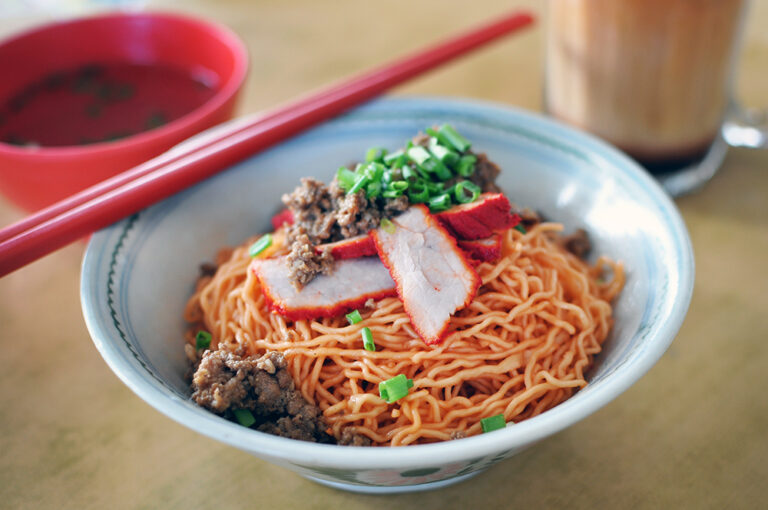
3-Manok Pansoh
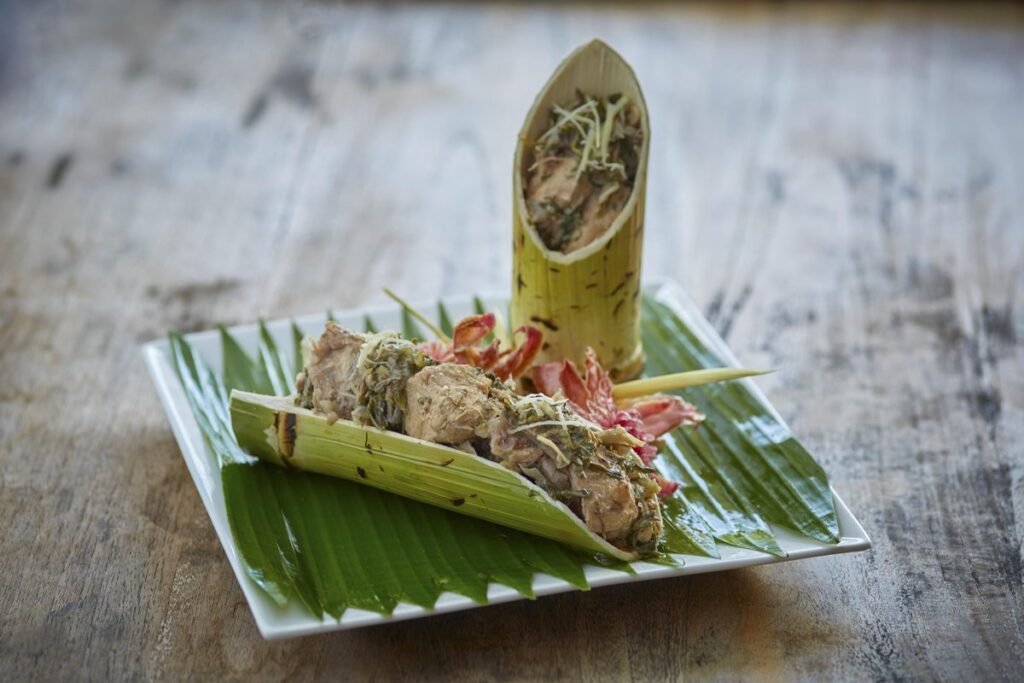
4-Midin (Jungle Fern)

5-Ayam Penyet
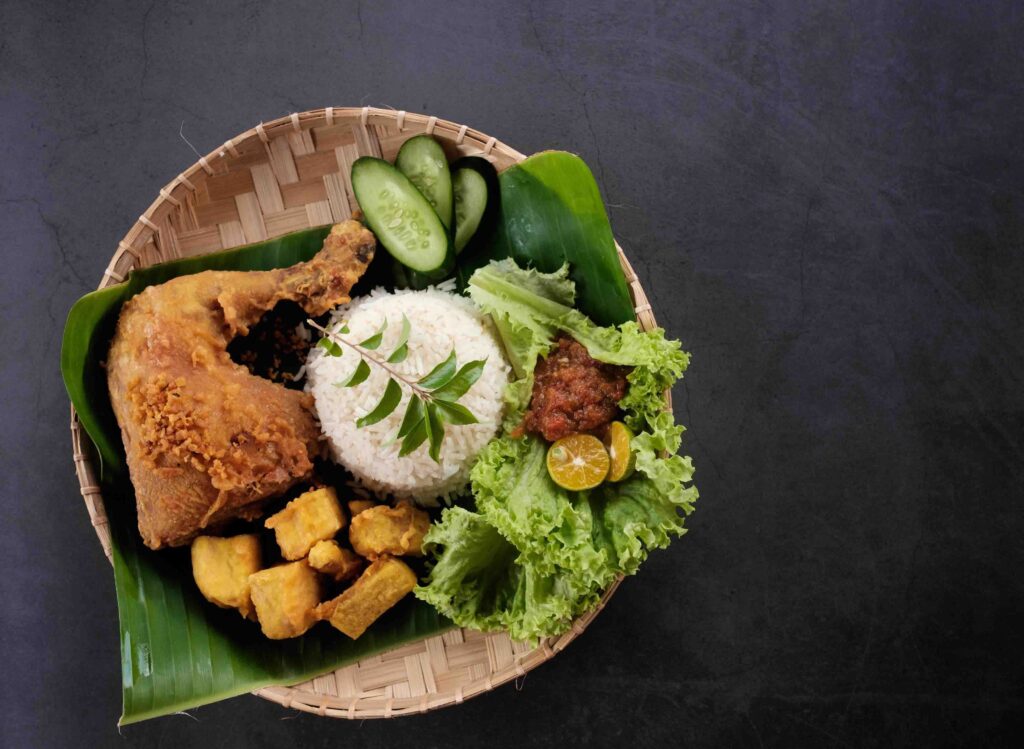
6- Kek Lapis Sarawak

Where to Eat in Kuching
- Top Spot Seafood Centre – For fresh seafood
- Chong Choon Café – Famous for Sarawak Laksa
- Lepau Restaurant – Best place for traditional Dayak cuisine.
- The Dyak – Authentic indigenous food in a cozy setting.
Historical Places in Kuching
1-Fort Margherita
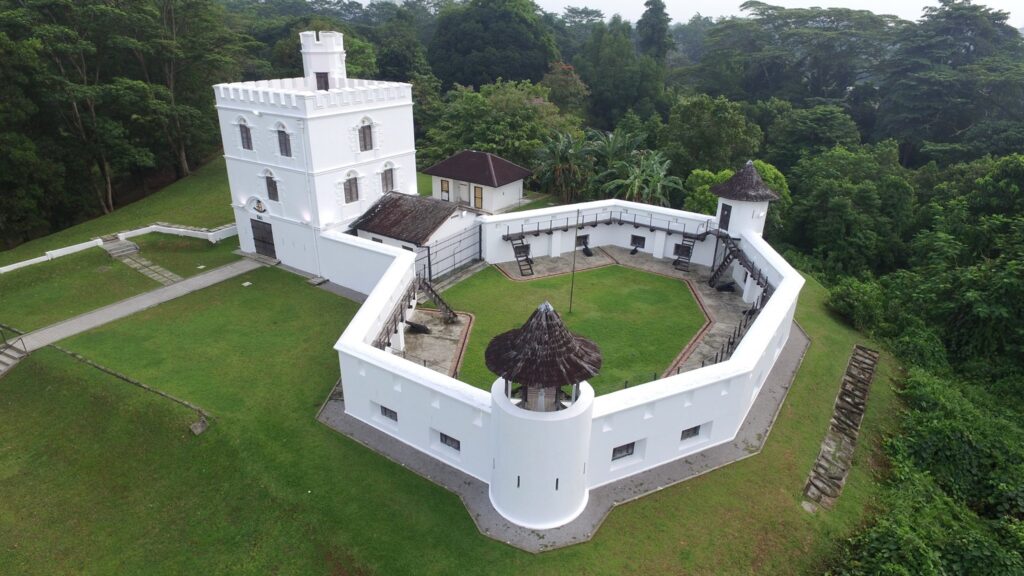
2-Sarawak Museum

3-The Astana

4-Chinese History Museum

5-Tua Pek Kong Temple

Natural Tourism Places
Bako National Park
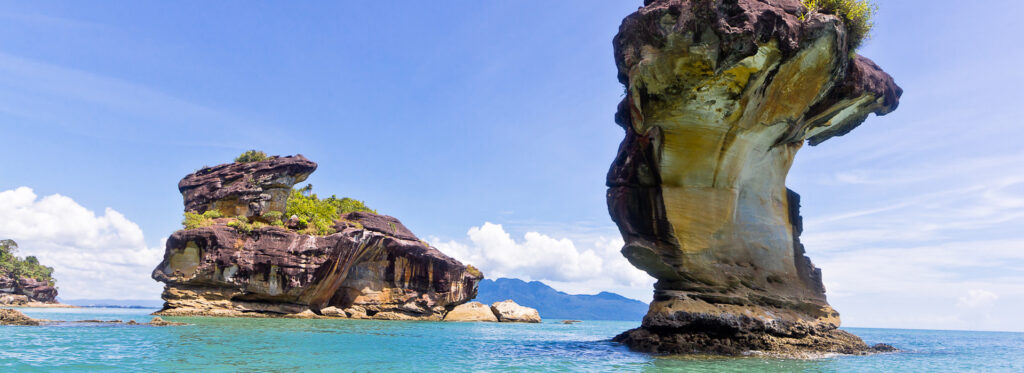
Semenggoh Wildlife Centre
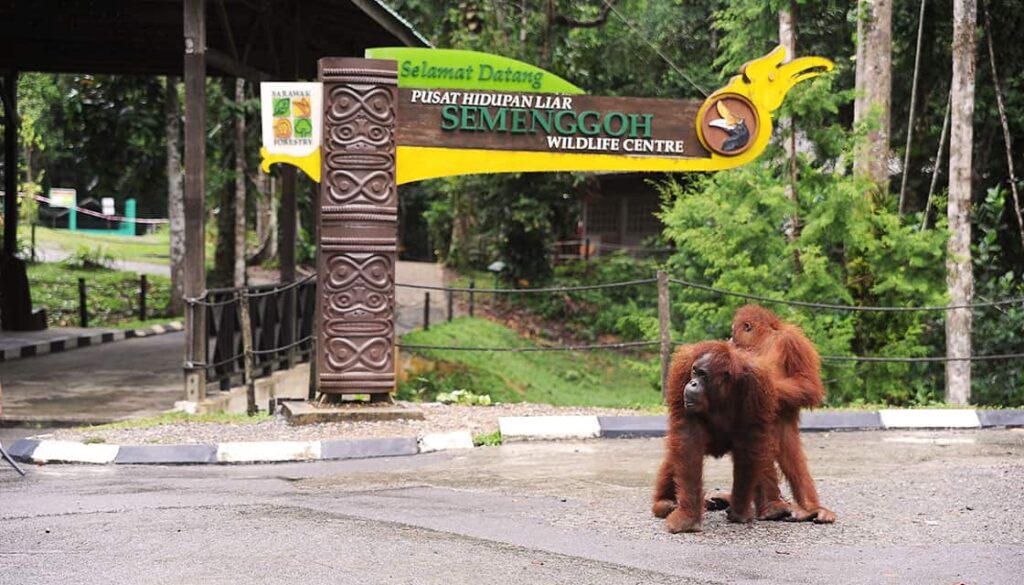
Gunung Gading National Park
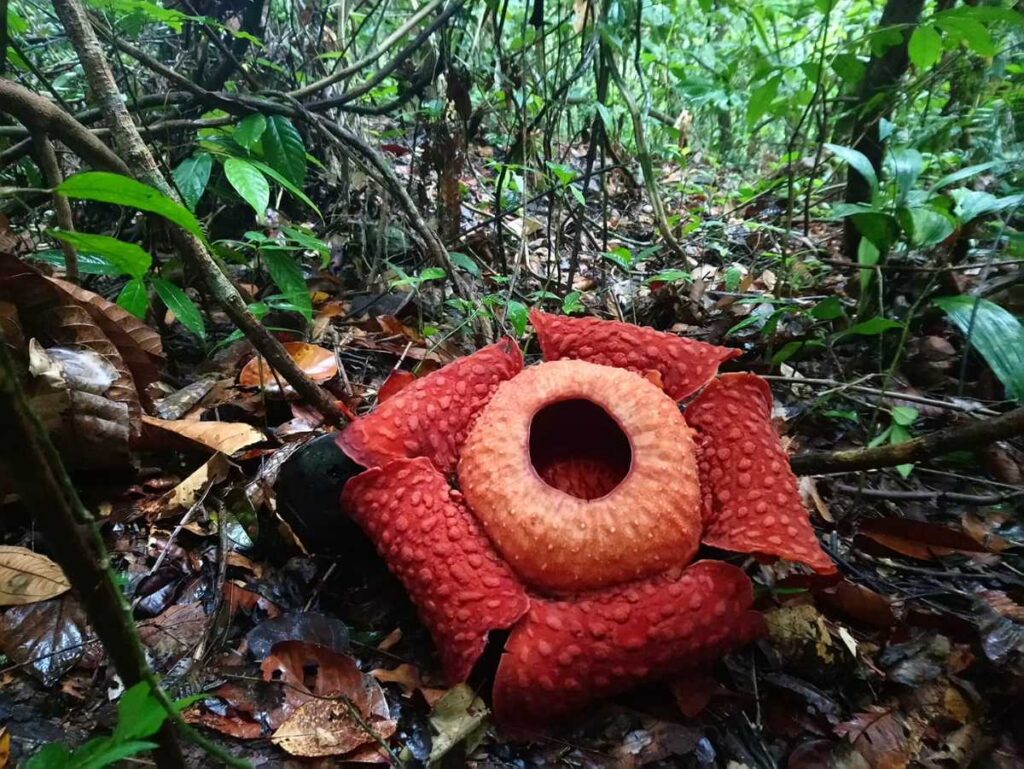
Sarawak River

Fairy Caves & Wind Caves

Religious Tourism & Markets
Religious Sites to Visit
Masjid Jamek Kuching
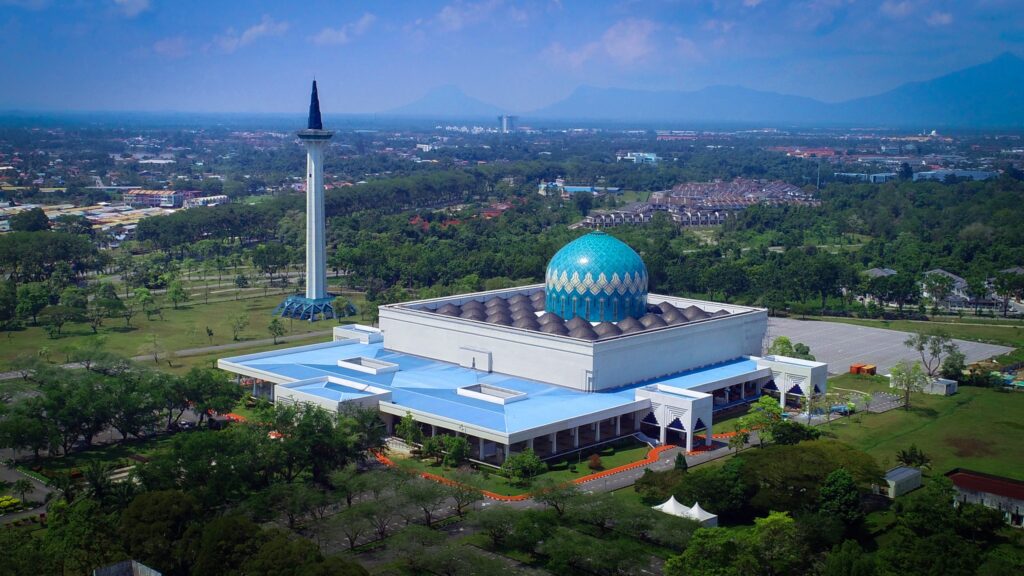
St. Joseph’s Cathedral
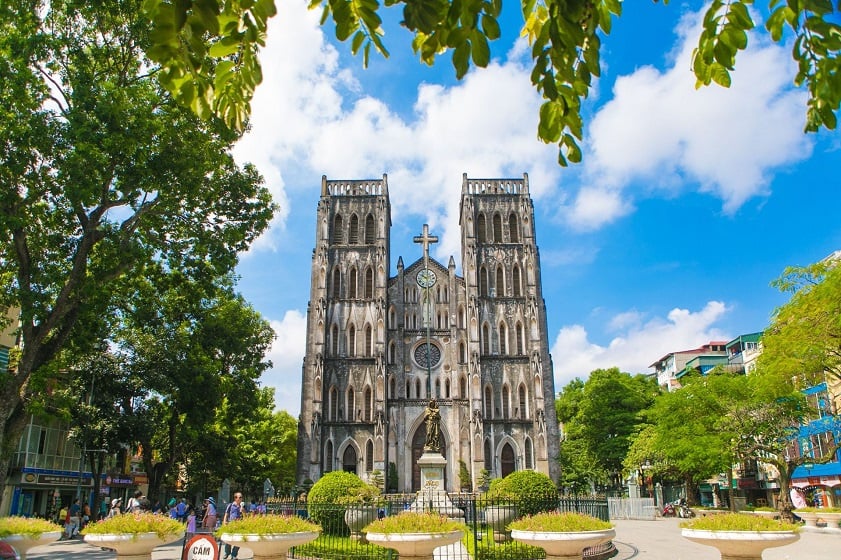
Markets for Religious Accessories
India Street Pedestrian Mall

Main Bazaar
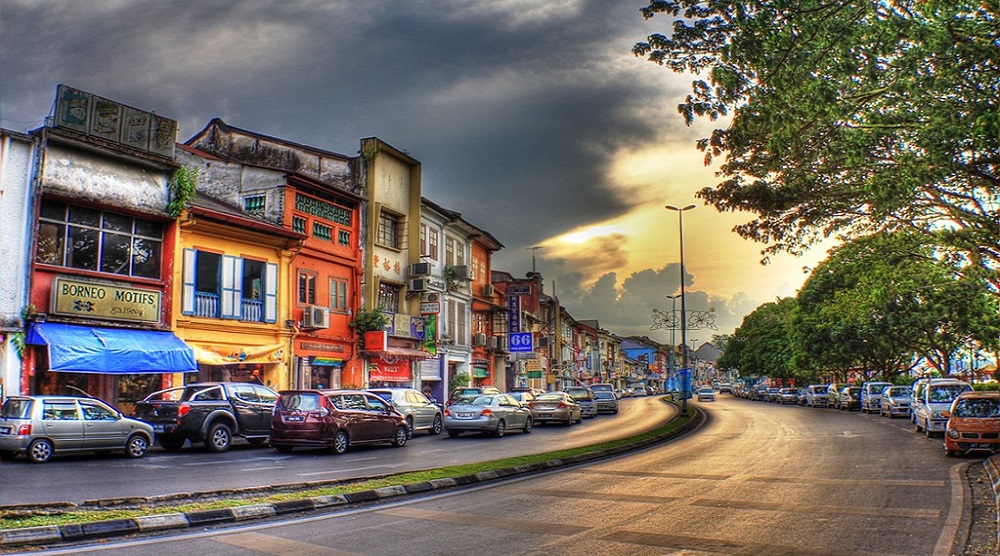
Local Sports
Sepak Takraw

Sepak takraw is a Southeast Asian sport that is played in Sarawak, Malaysia. It is also known as “kick ball” or “kick volleyball”.
How is it played?
- Players use their feet, knees, shoulders, chest, and head to touch the ball.
- A match is played between two teams of three players.
- Each game consists of two sets, with the winning score for each set being 21 points.
- If the score is tied at 20-20, the set is decided by a difference of two points, up to a maximum of 25 points.
- The first team to win two sets wins the match.
Silat

Silat is a martial art practiced in Sarawak, Malaysia, and other Southeast Asian countries. There are many different styles of silat, and each style may focus on strikes, joint manipulation, or weaponry.
Silat styles in Sarawak:
- Silat Melayu Asli Sarawak: A style that originated in Sambas, Kalimantan, Indonesia, and was brought to Sarawak by a businessman named Hj Jeraie.
- Silat Lokma: A style that was brought to Kuching, Sarawak by Haji Paris bin Haji Mohammad from Pulau Sarasan, Indonesia.
Dragon Boat Racing

Dragon boat racing is a popular event at the Sarawak International Dragon Boat Regatta (SIDBR). The SIDBR is an annual event that takes place on the Kuching Waterfront in Sarawak, Malaysia.
Why is dragon boat racing popular at the Sarawak Regatta?
- Cultural exchange : Participants from around the world come together to celebrate their cultures and compete in the races.
- Community engagement : The regatta brings together the state government, event organizers, and participants in a spirit of collaboration.
- National costume : Wear traditional costumes from their respective countries and ethnic groups.
- Family-friendly : The regatta is a great occasion for families from outside Kuching to visit the city.
Local Handicrafts
Pua Kumbu
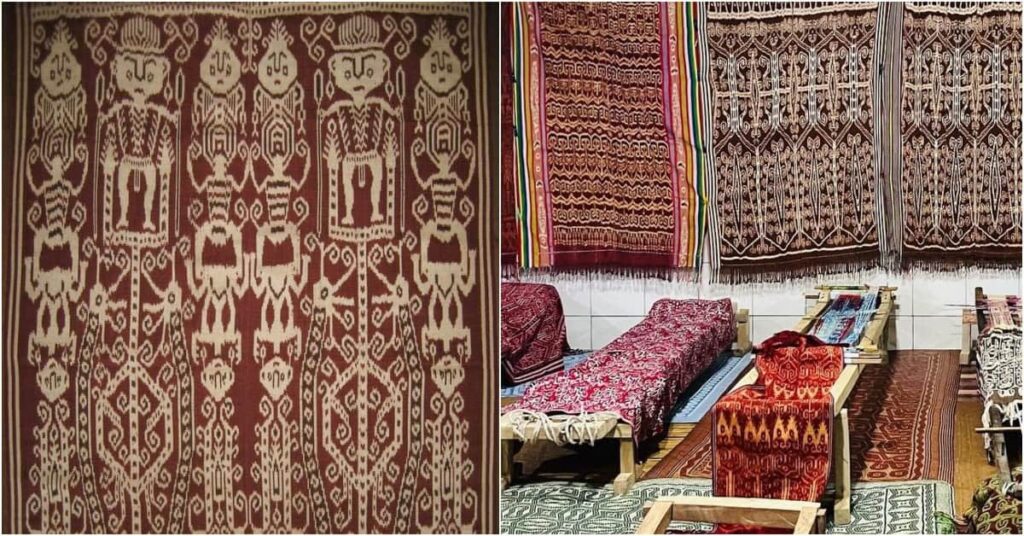
Beaded Jewelry – Intricate Bidayuh beadwork.
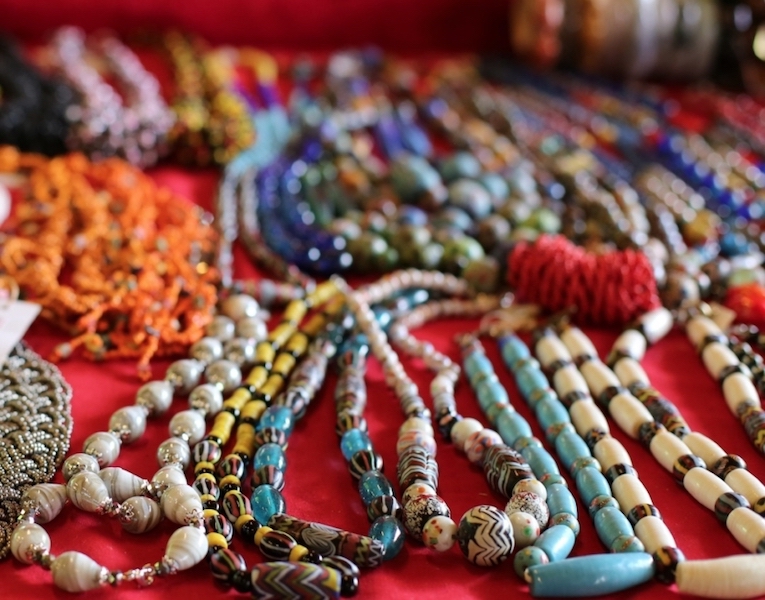
Orang Ulu Wood Carvings

Rituals & Festivals
Festivals in Kuching are a vibrant reflection of the city’s diverse cultural heritage, where various ethnic communities come together to celebrate their traditions, beliefs, and history. From the traditional Gawai Dayak and Sarawak Regatta to the grand celebrations of Chinese New Year and many others, the city is alive with cultural festivities throughout the year. These festivals not only offer a glimpse into the local way of life but also create a sense of unity and joy among the residents. Whether it’s religious observances, harvest celebrations, or community gatherings, Kuching’s festivals provide an enriching experience for both locals and visitors, showcasing the unique blend of cultural practices that make the city truly special.
Gawai Dayak
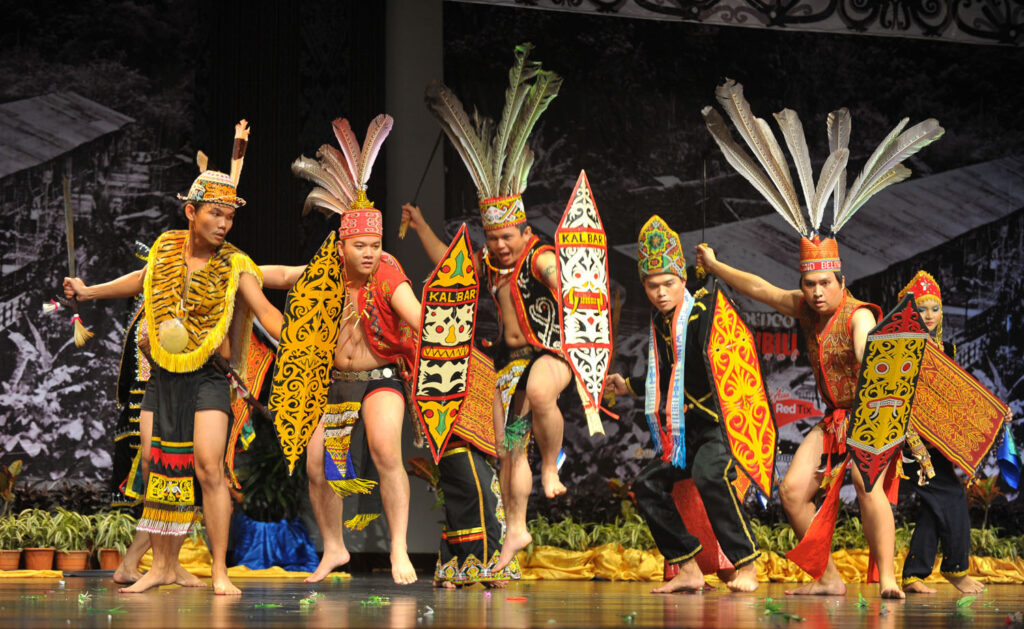
Celebrated in June, Gawai Dayak is one of the most important festivals for the Dayak community, particularly the Iban, Bidayuh, and Orang Ulu groups. This festival marks the end of the rice harvesting season and is a time to give thanks to the spirits for a bountiful harvest. Families come together for feasts, traditional dances, and music, often dressed in colorful, intricate attire. Rituals include prayers, offerings to spirits, and “ngabang” (visiting friends and family). The festival is a joyous occasion, showcasing Dayak cultural heritage through food, dances, and music, particularly the “sape” (traditional stringed instrument).
Sarawak Regatta
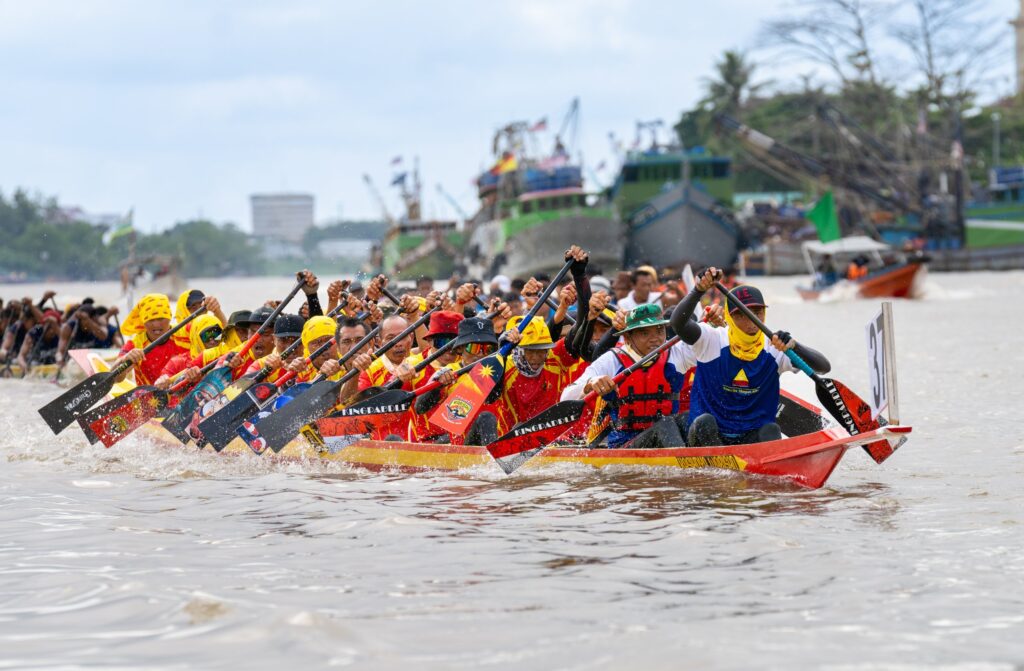
The Sarawak Regatta is an annual event held in August along the Sarawak River in Kuching. It is a celebration of Sarawak’s rich maritime and riverine culture. The festival features thrilling boat races, including traditional longboats, dragon boats, and other types of vessels. It’s a highly anticipated event with colourful parades, cultural performances, and a festive atmosphere. The regatta has deep historical significance as it was initially held to celebrate the state’s victory over pirates and to honour the river as a vital transportation route for the people of Sarawak. Visitors can enjoy the races while experiencing the unique cultural traditions of the area.
Chinese New Year
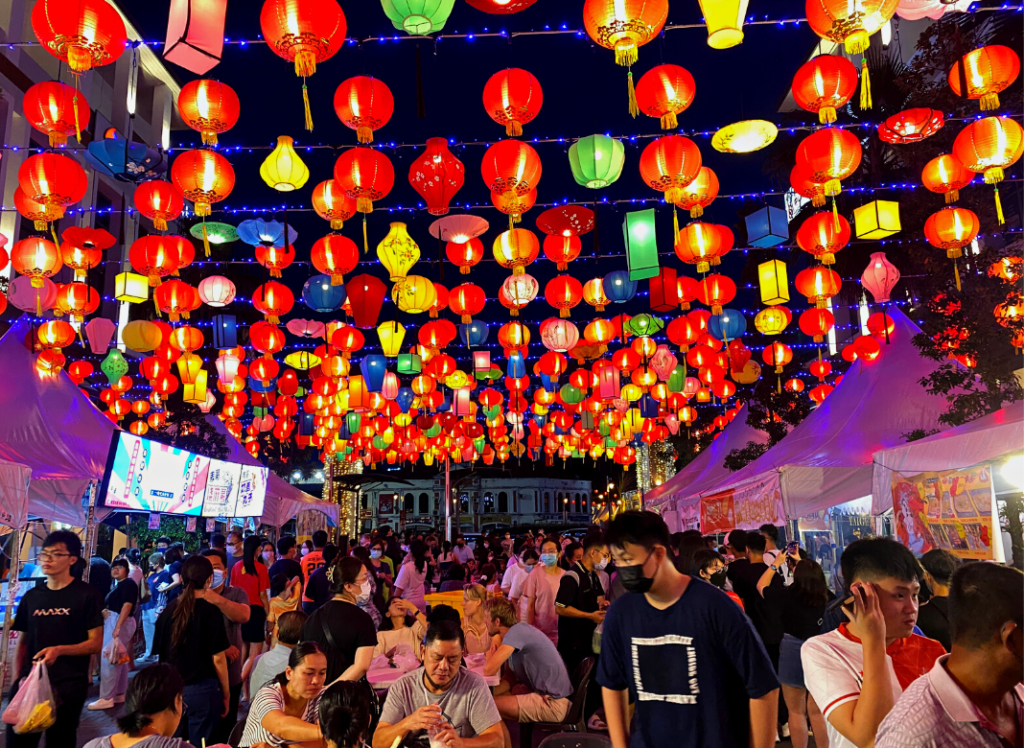
Like the rest of Malaysia, Chinese New Year is widely celebrated in Kuching, particularly by the Chinese community. The festival, which usually falls in January or February, marks the start of the lunar new year and is a grand celebration with traditional customs such as family reunions, giving of ang pau (red packets with money), and the lighting of firecrackers. The streets of Kuching come alive with colorful decorations, lion and dragon dances, and temple ceremonies. The festive atmosphere extends to the local markets, where shoppers buy festive foods, decorations, and new clothes. The Chinese New Year celebrations in Kuching are filled with joy, unity, and the expression of good wishes for the year ahead.
Hari Raya Aidilfitri

Hari Raya Aidilfitri, or Eid al-Fitr, is one of the most significant festivals for the Muslim community in Kuching, marking the end of the Ramadan fasting month. The celebration includes family gatherings, feasts, wearing new clothes, and giving duit raya (money gifts) to children and unmarried relatives. The festival is celebrated with prayers in mosques, followed by visits to family and friends’ homes to share meals, particularly traditional dishes like rendang, ketupat, and lemang.
Kaul Festival

The Kaul Festival is celebrated by the Melanau community, primarily in Kuching’s coastal regions. Held in April, it is a ritual to honor the spirits of the sea and ensure safety and good fortune for the year ahead. This festival involves traditional dances, feasts, and the creation of a sacred Kaul altar on the beach. Offerings of food, flowers, and coconuts are made to the sea spirits in hopes of a bountiful year.
Merdeka Day
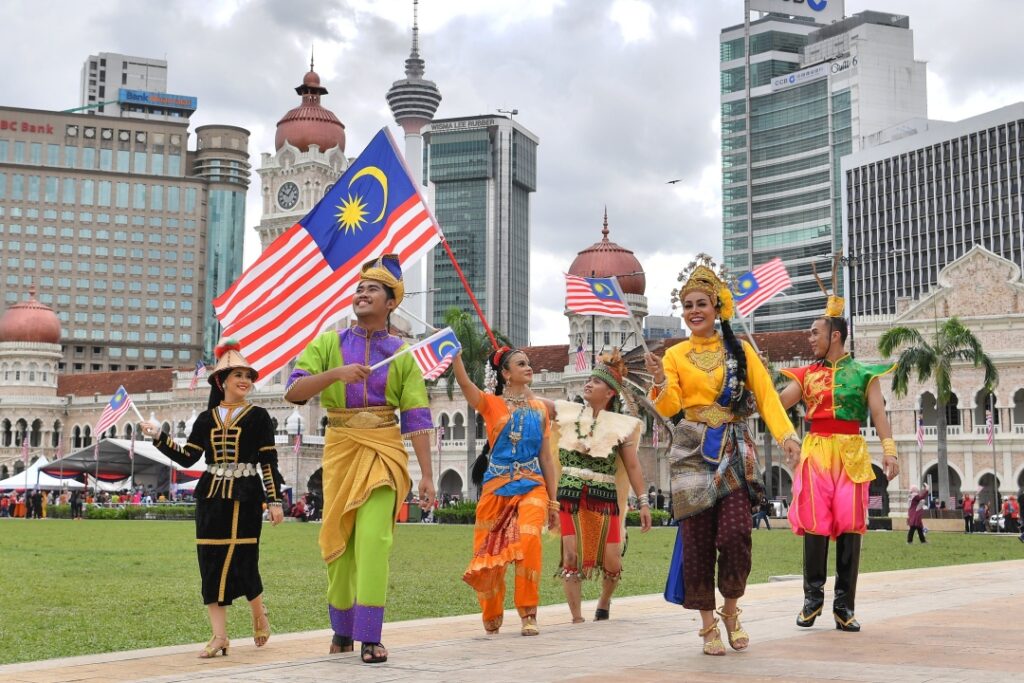
Though a national celebration, Merdeka Day on 31st August is widely observed in Kuching. The city celebrates Malaysia’s independence with parades, flag-hoisting ceremonies, and cultural performances. People from all ethnic backgrounds come together to celebrate the unity of the country. There are also fairs and local events throughout the city, making it a lively time to visit.
Sarawak Cultural Festival

This annual festival, typically held in July, celebrates Sarawak’s diverse cultures, featuring performances, dances, music, and food from various ethnic communities. The event showcases traditional costumes, crafts, and rituals, offering visitors a chance to experience the rich cultural heritage of the region in one place.
Cost of Living in Kuching
Budget traveler: $30–50/day.
Mid-range: $60–100/day.
Luxury: $150+/day.
Basics of the Local Language (Malay)
Hello – Selamat pagi.
Thank you – Terima kasih.
How much? – Berapa harga?
Where is…? – Di mana…?
Weather in Kuching
- Hot & Humid year-round.
- Rainy Season – November to February.
Kuching experiences a hot and humid climate throughout the year, typical of its tropical rainforest environment. Temperatures generally range from 23°C to 32°C (73°F to 89°F), with humidity levels often hovering around 80%. Due to its equatorial location, the city enjoys consistent warmth, making lightweight, breathable clothing ideal for visitors.
Kuching also experiences a rainy season from November to February, when the area receives heavy rainfall, often in the form of afternoon or evening thunderstorms. The rain can be intense, but it usually doesn’t last all day, and the weather tends to clear up quickly. Despite the rain, the lush greenery and vibrant landscapes are at their best during this period. The rest of the year sees occasional rainfall, but it’s generally more scattered, with March to October being relatively drier.
Overall, Kuching’s weather remains consistently warm and humid, so it’s important to stay hydrated and wear sunscreen, especially when exploring the city or its outdoor attractions.
Local & Private Transportation
Kuching Metro
Kuching Metro is a digital platform designed to enhance the public transportation experience in Kuching, Malaysia. Aimed at making commuting more efficient and convenient, the app provides real-time tracking, route information, bus schedules, and other helpful features for users of the MyBAS city bus services. By offering real-time updates on bus locations and arrival times, Kuching Metro helps passengers plan their trips more effectively, reducing wait times and improving the overall experience of using public transport. The app is a step forward in modernizing the city’s transportation system, making it easier for locals and visitors to navigate Kuching’s public transit network while promoting eco-friendly travel options.
Grab & Maxim
Grab and Maxim are two popular ride-hailing services that operate in Kuching, providing convenient transportation options for both locals and visitors.
- Grab: Grab is the most widely used ride-hailing service in Malaysia and Southeast Asia. The app allows users to book a ride through their smartphones, offering various ride options, including GrabCar (standard car), GrabTaxi, GrabBike (motorcycle), and GrabFood (food delivery). Grab is known for its reliability, user-friendly interface, and transparent pricing, which is calculated based on the distance traveled and time taken for the ride. It’s an excellent option for getting around Kuching, whether for a quick ride within the city or a longer journey.
- Maxim: Maxim is another popular ride-hailing service operating in Kuching. Like Grab, Maxim offers a similar range of transportation services, allowing users to book a ride via its app. Maxim has gained popularity due to its competitive pricing, availability, and a good number of cars and drivers. It offers an alternative for those who want to compare prices or prefer a different app for booking rides.
Both services are reliable, with Grab being more well-known in Malaysia and Maxim offering good competition in terms of pricing and availability. Both platforms make it easy to get around Kuching, whether you’re traveling to a popular destination or exploring the city’s less accessible areas.
Sampan (Boat Taxis)
Sampan boat taxis are a traditional and convenient way to cross the Sarawak River in Kuching. These small boats offer a scenic and quick ride between the riverbanks, providing access to key attractions like the Kuching Waterfront and Fort Margherita. The ride is affordable, operated by local boatmen, and offers a unique, cultural experience while enjoying views of the city’s riverfront.
Beliefs Of Local Community
The people of Kuching are a diverse blend of ethnic groups, including Malays, Chinese, Dayaks (Iban, Bidayuh, Orang Ulu), and Indians, each with their own cultural beliefs. One core value shared by all communities is respect for elders. Elders are seen as the custodians of wisdom and traditions, and their guidance is highly valued. In Malay and Dayak cultures, the family is central, with a strong emphasis on family values, loyalty, and care for one another, often extending to extended families living together.
The local community also has a profound connection with nature and spiritual traditions. Many Dayaks believe in spirits that protect the land, with rituals that honor the natural world. The Malay community, influenced by Islam, views nature as a sign of God’s creation, emphasizing harmony with the environment. The Chinese community practices feng shui and ancestral worship, focusing on the balance between humans and nature for prosperity and harmony.
In terms of religion, Kuching’s residents practice a variety of faiths. Islam is the dominant religion among the Malays, with daily prayers, fasting during Ramadan, and pilgrimages to Mecca being key practices. Many Iban and Bidayuh people are Christians, with churches being central to community life. The Chinese community follows Buddhism, Taoism, and Confucianism, with temples and festivals playing an important role in their religious practices. The Indian community practices Hinduism, with temples and festivals like Deepavali being celebrated. Overall, the people of Kuching’s diverse spiritual beliefs foster a rich cultural heritage, influencing their daily lives, customs, and celebrations.
Restrictions in Kuching
Kuching is generally a safe and welcoming place for tourists, but like any destination, there are a few local customs, laws, and regulations to be mindful of. Here are some important restrictions and things to avoid:
- Respect Religious and Cultural Norms: Kuching is a city with strong religious and cultural values, especially among the Malay and indigenous communities. When visiting mosques, temples, or churches, dress modestly, covering shoulders and knees, and remove shoes when entering religious buildings. Always ask for permission before taking photographs inside religious or sacred places.
- Avoid Public Displays of Affection: In more conservative areas, particularly among the Malay community, public displays of affection (like kissing or hugging) are considered disrespectful. It’s best to keep such behavior private.
- Alcohol Consumption: While alcohol is available in Kuching, drinking in public places, such as on the street or at religious sites, is frowned upon. If you’re planning to drink, do so in designated bars or restaurants. It’s also important to be mindful of the local Muslim population, for whom alcohol consumption is prohibited.
- Smoking Regulations: Kuching has designated no-smoking areas, particularly in public spaces like shopping malls, restaurants, and public transport. Make sure to smoke only in areas where it’s allowed.
- Respect for Local Traditions: If you’re visiting indigenous villages or attending traditional ceremonies, make sure to ask for permission before photographing or recording. In some indigenous cultures, certain rituals or activities may be sacred, and it’s important to respect these practices.
- Wildlife and Nature Preservation: Kuching is surrounded by rich natural reserves and wildlife, and there are strict regulations in place to protect the environment. Avoid disturbing wildlife, and follow all guidelines when visiting national parks and reserves. Removing plants, animals, or any natural resources is prohibited.
- Dress Modestly in Public: Malaysia, including Kuching, generally has a conservative approach to dress. It’s advisable for both men and women to dress modestly, especially when visiting religious sites or public places. Women should cover their shoulders and avoid wearing revealing clothing in these areas.
- Illegal Drugs: Malaysia has very strict drug laws, and the possession, trafficking, or use of illegal drugs can result in severe penalties, including the death penalty. Be aware of this strict stance and avoid involvement with drugs.
By following these guidelines and respecting local customs, you’ll have a smooth and enjoyable experience in Kuching, while also showing respect for the local community and culture.

Leave a Reply